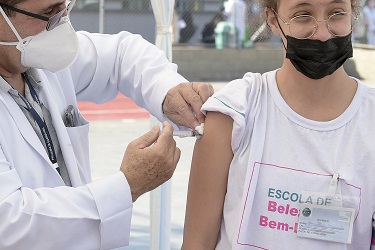Guarulhos does not have an outbreak of meningococcal C meningitis and residents do not need to be vigilant. The City Hall warning came due to several rumors that spread through social networks and caused confusion among the residents of Guarulhos.
Across the city, the number of meningococcal meningitis cases decreased in 2022 compared to 2019, the year before the Covid pandemic. Until the 39th epidemiological week (the first of October), this decrease was 44.32%.
prevention measures
Immunization is the most effective measure for preventing immune diseases. The Department of Health’s National Immunization Calendar refers to the vaccination of infants and adolescents against meningitis, which covers several types of bacteria that cause the disease. The person in charge should look for a primary health care unit (BHU) to check the vaccination status of the child and adolescent. It is important to emphasize that health workers receive the meningitis C vaccination dose in the city’s polar units.
Another important measure is to maintain breathing etiquette, i.e. wash your hands frequently, maintain well-ventilated environments and cover your nose and mouth when coughing and sneezing.
Meningitis
Meningitis is an inflammation of the meninges, the membranes that surround the brain and spinal cord. The disease can be caused by viruses (viral meningitis), bacteria (bacterial meningitis), fungi (fungal meningitis), and parasites.
Viral meningitis is the most common and usually progresses well. It can be transmitted through contact with saliva and respiratory secretions or through contaminated food and water.
Bacterial meningitis is a serious disease that can be caused by various bacteria. It is transmitted by the patient’s coughing or sneezing, through secretions that come out through the respiratory tract (nose and mouth). For this transmission to occur, direct, intimate and frequent contact with the sick person (exchange of secretion) is required.
When the bacteria are meningococcal, the fever is sudden, vomiting occurs in puffs, convulsions, red spots on the skin that do not go away when pressed and a severe headache.
Photo: Fábio Nunes Teixeira

